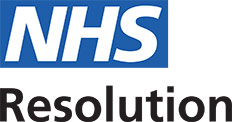Our priorities (Part 1)
Strategic priority 1: Fair resolution
What success will look like: We will focus on fair and timely resolution, as far as possible keeping patients and healthcare staff out of litigation and other formal processes to minimise distress and cost.
Indemnity and Claims Management
We are committed to tackling the distress and cost associated with clinical negligence. Our ambition is that no compensation claim against the NHS should enter litigation unless absolutely necessary. Some cases will always need to be dealt with by the courts, for example, to protect vulnerable individuals, determine novel legal issues or contest claims where there is no entitlement to compensation from public funds, and this will mean that we expect the rate of litigated claims will stabilise. However, our focus will be to continue to innovate and improve our processes to deliver fair, compassionate and efficient resolution.
We will achieve this by:
- Driving forward our innovation in dispute resolution models
- particularly the use of early neutral evaluation, resolution summits, case stock-takes and remote mediations. These methods of dispute resolution give us the opportunity to choose, in collaboration with claimants and their representatives, the most suitable course of action, tailored to each case. We believe that a range of models is needed to address claimants’ concerns and achieve resolution which does not prejudge the outcome sought and what is most important to an individual. We will also make the most of the technological advancements available to support this aim.
- Working closely with the NHS and with claimant lawyers
- so that we understand and can respond to emerging models and changes in the legal environment and are collectively ensuring that we are driving fair and effective claims management.
- Continuing to develop our operating model, through our Claims Evolution Programme
- to deliver efficiency savings by bringing in more work in-house, identifying best practice for delivering fair resolution of claims. The programme will also empower our staff, utilising their expertise to deliver resolution of claims, with a financial benefit to public funds, all without compromising the service delivered to users of our services.
- Implementing the findings of the evaluation of our innovative Early Notification Scheme
- giving us the opportunity to accelerate aspects of the scheme which are working well and review where changes may be needed. This includes working with Maternity and Newborn Safety Investigations (MNSI) to strengthen alignment between MNSI investigations and EN assessments and to identify other opportunities for learning.
- Enhancing our approach to family engagement
- to ensure that the experience and perspectives of families affected by severe birth injury remains central to what the EN scheme aims to achieve, calling on the skills of our Family Liaison and Mediation Lead and building on the work we have done to improve transparency and how we communicate with families, by developing support materials that meet the needs of diverse audiences.
Practitioner Performance Advice
In line with the ambitions of our Practitioner Performance Advice (Advice) service to advocate local informal resolution first, we will help the NHS to resolve issues concerning healthcare practitioner performance at the earliest possible stage in a fair, timely and proportionate way to reduce an adverse impact on the practitioner, their team and the organisation.
We will achieve this by:
- Acting as an impartial adviser to all parties involved in practitioner performance concerns
- whether they are healthcare organisations, teams or individual doctors, dentists, or pharmacists.
- Providing fair, respectful and expert advice and interventions which achieve resolution
- and place service quality, retention and practitioner experience in the centre of the process. We will also proactively challenge management practice which puts practitioners or patients at risk.
- Continuously improving our interventions and assessments
- to respond to emerging themes in concerns, particularly those associated with behaviour.
- Working collaboratively with users of our services
- to hear and respond to feedback about their experience and how we can better support them.
- Engaging with Boards to support their role
- in effective leadership, clinical and corporate governance, and oversight of performance management.
Primary Care Appeals
Our Primary Care Appeals (Appeals) service, which joined our organisation 20 years ago following its establishment in 1991, will continue to be transparent, robust and impartial in its decision-making and responsive to the implications of case law and judicial review outcomes.
We will achieve this by:
- Interpreting and applying primary care regulations alongside consideration of public law issues
- and responding rapidly to new areas of dispute.
- Publishing all Appeals service decisions promptly and transparently
- by explaining outcomes, new approaches or policies based on case law and judicial guidance.
All of our services
Our Significant Concerns Framework, which allows us to share information internally and externally across our services where we see instances of harm or potential harm, will continue to respond to the evolving NHS landscape.






